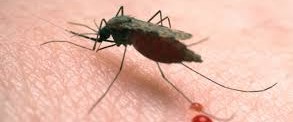We recently received the good news the Research Council of Norway will fund the project: “Combining indoor residual spraying and long-lasting insecticidal nets for preventing malaria: Cluster randomised trial in Ethiopia”.
This research aims to improve malaria control by evaluating the combined effect of indoor residual spraying (IRS) and long-lasting insecticidal nets (LLINs) on malaria incidence in Ethiopia. This project addresses how to promote uptake of research findings into public health programmes by enhancing our knowledge on interventions that will improve the effectiveness and coverage of malaria control programmes. It includes community randomised controlled trials to assess effectiveness of multiple interventions in combination versus one method alone within routine malaria control settings.
The clinical study objectives are to examine if IRS with insecticide and LLINs provide added protection against clinical malaria compared with LLINs alone. In the health economic part we shall estimate the costs of LLINs alone or combined with IRS, compared with current standard practice in the study settings. The study will also include studies on the anopheles mosquito where we aim to assess whether IRS with insecticide plus LLINs reduces vector biting and resting preference and density, longevity, infection and entomological inoculation rates inside houses when compared with LLIN alone.
We plan to start preliminary studies in late 2012, with start of the trial during the main malaria season in 2013. The planned study site is in the Adami Tullu area in the central part of the Rift valley in Ethiopia. This research will build up on the already established research collaboration between the University of Bergen, Addis Ababa University (School of Public Health and Aklilu Lemma Institute of Pathobiology), Hawassa University, and the Ethiopian Ministry of Health (Malaria Control).
